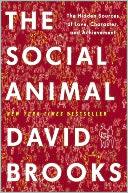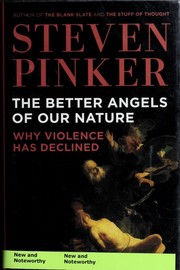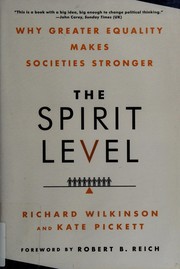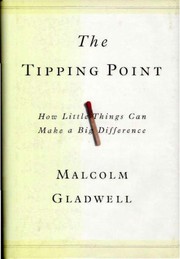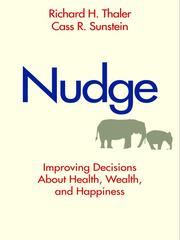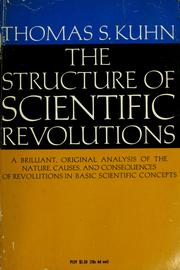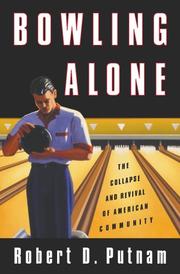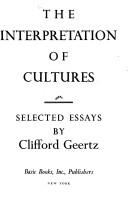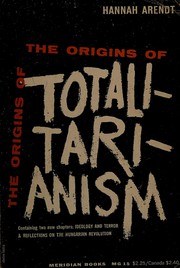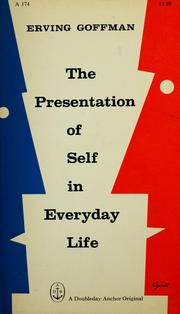If you’re eager to expand your knowledge of social science, look no further! We’ve compiled a list of the 20 best books on social science that are guaranteed to captivate and educate you. Whether you’re interested in sociology, psychology, anthropology, or any other aspect of social science, these books are a must-read. From groundbreaking theories to insightful studies, these books cover a wide range of topics that will leave you enlightened and inspired. Get ready to dive into the fascinating world of social science with these essential reads!
Contents
- 1 20 Best Books About Social Science
- 2 Sapiens: A Brief History of Humankind
- 3 The Righteous Mind: Why Good People Are Divided by Politics and Religion
- 4 Weapons of Math Destruction: How Big Data Increases Inequality and Threatens Democracy
- 5 The Social Animal: The Hidden Sources of Love, Character, and Achievement
- 6 The Better Angels of Our Nature: Why Violence Has Declined
- 7 The Spirit Level: Why Greater Equality Makes Societies Stronger
- 8 Thinking, Fast and Slow
- 9 Evicted: Poverty and Profit in the American City
- 10 The New Jim Crow: Mass Incarceration in the Age of Colorblindness
- 11 The Tipping Point: How Little Things Can Make a Big Difference
- 12 Nudge: Improving Decisions About Health, Wealth, and Happiness
- 13 The Power of Habit: Why We Do What We Do in Life and Business
- 14 The Structure of Scientific Revolutions
- 15 Bowling Alone: The Collapse and Revival of American Community
- 16 The Interpretation of Cultures: Selected Essays
- 17 The Origins of Totalitarianism
- 18 The Sociological Imagination
- 19 The Presentation of Self in Everyday Life
- 20 Guns, Germs, and Steel: The Fates of Human Societies
- 21 Freakonomics: A Rogue Economist Explores the Hidden Side of Everything
- 22 Conclusion
- 23
- 24 Top 20 Best Books on Adapting To Change:2024 Edition
- 25 Discover Best Community Books: 20 Key Titles, 2024 Updated
- 26 Books about Autism For Teachers: 2024 Updated Guide to Essential Reading
20 Best Books About Social Science
Sapiens: A Brief History of Humankind
by Yuval Noah Harari
Sapiens: A Brief History of Humankind by Yuval Noah Harari is a thought-provoking book on social science that takes readers on a captivating journey through the history of Homo sapiens. Harari explores the evolution of our species, from the Cognitive Revolution that sparked the rise of humans to the Agricultural Revolution and the formation of complex societies. He delves into the impact of language, culture, and technology on the trajectory of human history, offering insightful perspectives on the development of civilizations and the interconnectedness of global societies. Through a blend of anthropology, biology, and history, Harari provides a fascinating analysis of the forces that have shaped the human experience. Sapiens is a must-read for anyone interested in understanding the complexities of human society and the book about social science that will challenge readers to rethink their perceptions of the past and present.
The Righteous Mind: Why Good People Are Divided by Politics and Religion
by Jonathan Haidt
The Righteous Mind: Why Good People Are Divided by Politics and Religion by Jonathan Haidt is a fascinating book about social science that delves into the psychology behind moral and political beliefs. Haidt explores the innate human tendency to form moral judgments and how these judgments can divide people along political and religious lines. Through a combination of research and real-life examples, he offers insights into the roots of our moral intuitions and why people on different ends of the political spectrum often seem to be speaking different moral languages. The book challenges readers to consider the psychological underpinnings of their own beliefs and to approach political and religious differences with a deeper understanding of the human mind. The Righteous Mind is a thought-provoking and insightful social science book that sheds light on the complexities of human morality and the divisions it creates in society.
Weapons of Math Destruction: How Big Data Increases Inequality and Threatens Democracy
by Cathy O’Neil
Weapons of Math Destruction by Cathy O’Neil is a thought-provoking book on social science that explores the negative impact of big data and algorithms on society. O’Neil delves into how these mathematical models perpetuate inequality and threaten democracy by reinforcing biases and discrimination. She presents real-life examples, from education to finance, that demonstrate the harmful effects of these “weapons of math destruction.” The book offers a critical examination of the unchecked power of big data and calls for greater transparency and accountability in its use. With a compelling narrative and insightful analysis, O’Neil sheds light on the urgent need to address the ethical and social implications of data-driven decision-making. This social science book is a must-read for anyone interested in understanding the intersection of technology, inequality, and democracy.
The Social Animal: The Hidden Sources of Love, Character, and Achievement
by David Brooks
The Social Animal: The Hidden Sources of Love, Character, and Achievement by David Brooks is a captivating book on social science that delves into the complexities of human behavior and the forces that shape our lives. Through the fictional story of a couple named Harold and Erica, Brooks explores the various psychological and sociological factors that influence our decision-making, relationships, and ultimately, our success. The book offers profound insights into the workings of the human mind and the interconnectedness of our emotions, experiences, and social environments. With a blend of compelling storytelling and thought-provoking analysis, Brooks provides readers with a deeper understanding of the hidden influences that drive our behavior and shape our lives. Whether you’re interested in psychology, sociology, or personal development, this social science book offers a fascinating exploration of the human experience.
The Better Angels of Our Nature: Why Violence Has Declined
by Steven Pinker
The Better Angels of Our Nature by Steven Pinker is a groundbreaking book on social science that explores the remarkable decline of violence throughout human history. Pinker argues that, contrary to popular belief, we are living in the most peaceful era of our species’ existence. Drawing on a wide range of historical and psychological data, Pinker presents a compelling case for the decline of violence in various forms, including war, homicide, and domestic abuse. He delves into the psychological and cultural factors that have contributed to this decline, offering a thought-provoking analysis of human behavior and society. Through engaging storytelling and thorough research, Pinker challenges conventional wisdom and offers a hopeful perspective on the future of humanity. This book about social science is essential reading for anyone interested in understanding the complex dynamics of human violence and the forces that have shaped our peaceful present.
The Spirit Level: Why Greater Equality Makes Societies Stronger
by Richard Wilkinson and Kate Pickett
The Spirit Level: Why Greater Equality Makes Societies Stronger is a groundbreaking book on social science that delves into the relationship between inequality and societal well-being. Authors Richard Wilkinson and Kate Pickett present compelling evidence that more equal societies tend to be happier, healthier, and more cohesive, while also experiencing lower rates of crime and mental illness. Through extensive research and data analysis, the authors argue that reducing inequality is not only morally right, but also beneficial for the overall prosperity of a society. This book about social science challenges conventional thinking and offers a thought-provoking perspective on the impact of inequality on various aspects of our lives. The Spirit Level is a must-read for anyone interested in understanding the complex dynamics of modern societies and the potential for positive change.
Thinking, Fast and Slow
by Daniel Kahneman
Thinking, Fast and Slow by Daniel Kahneman is a captivating book on social science that delves into the two systems that drive the way we think. Kahneman, a Nobel Prize-winning psychologist, explores the fast, intuitive, and emotional ‘System 1’ thinking, as well as the slower, more deliberate, and logical ‘System 2’ thinking. Through engaging anecdotes and thought-provoking experiments, Kahneman reveals the cognitive biases and errors that affect our decision-making processes. This social science book offers valuable insights into how our minds work and the ways in which we can make more rational choices. Whether you are interested in psychology, behavioral economics, or simply understanding human behavior, Thinking, Fast and Slow is a must-read for anyone seeking to gain a deeper understanding of the complexities of the human mind.
Evicted: Poverty and Profit in the American City
by Matthew Desmond
Evicted: Poverty and Profit in the American City is a captivating book on social science that sheds light on the devastating impact of eviction on the lives of low-income families in America. Written by Matthew Desmond, a renowned sociologist, the book takes readers on a compelling journey through the lives of eight families struggling to keep a roof over their heads in Milwaukee. Desmond skillfully intertwines their personal stories with in-depth research to uncover the systematic forces at play within the housing market, exposing the cycle of poverty and profit that perpetuates eviction. Through vivid storytelling and meticulous analysis, this book about social science offers a profound exploration of the intersection between poverty, housing, and the pursuit of profit in American cities. Evicted is a must-read for anyone seeking to understand the complex dynamics of urban poverty and the human cost of inequality.
The New Jim Crow: Mass Incarceration in the Age of Colorblindness
by Michelle Alexander
The New Jim Crow: Mass Incarceration in the Age of Colorblindness by Michelle Alexander is a groundbreaking book about social science that explores the systematic mass incarceration of African Americans in the United States. Alexander argues that the U.S. criminal justice system operates as a new form of racial control, perpetuating the same racial inequality that existed during the Jim Crow era. She delves into the history of racial segregation and discrimination, and presents compelling evidence to show how the War on Drugs has disproportionately targeted and criminalized black communities. This social science book challenges the notion of colorblindness and calls for a reexamination of the racial biases inherent in the criminal justice system. The New Jim Crow is an eye-opening and thought-provoking read that sheds light on the deep-rooted racial injustice within the American legal system.
The Tipping Point: How Little Things Can Make a Big Difference
by Malcolm Gladwell
The Tipping Point: How Little Things Can Make a Big Difference by Malcolm Gladwell is a captivating book about social science that explores the fascinating concept of how small actions can lead to significant changes in society. Gladwell delves into the idea of “tipping points,” the moments when an idea, trend, or behavior crosses a threshold and spreads like wildfire. Through engaging stories and thought-provoking analysis, he uncovers the factors that contribute to these tipping points, from the influence of connectors and mavens to the power of context and contagiousness. This insightful social science book provides valuable insights into the dynamics of social change and how seemingly minor factors can have a major impact on the world around us. The Tipping Point is a must-read for anyone interested in understanding the complex dynamics of human behavior and societal trends.
Nudge: Improving Decisions About Health, Wealth, and Happiness
by Richard H. Thaler and Cass R. Sunstein
Nudge: Improving Decisions About Health, Wealth, and Happiness is a groundbreaking book on social science that explores how small changes in the way choices are presented can have a big impact on decision-making. Authors Richard H. Thaler and Cass R. Sunstein delve into the concept of “nudging” and how it can be used to help people make better choices in various aspects of their lives, from personal finance to health and well-being. Through real-life examples and engaging anecdotes, the authors demonstrate how subtle changes in the way options are framed can lead to better outcomes for individuals and society as a whole. This social science book challenges traditional notions of rational decision-making and offers practical insights into how we can design choice architectures to promote better decision-making. Nudge is a must-read for anyone interested in understanding human behavior and improving decision outcomes.
The Power of Habit: Why We Do What We Do in Life and Business
by Charles Duhigg
The Power of Habit by Charles Duhigg is a compelling book on social science that explores the science behind why we do what we do in both our personal lives and in business. Duhigg delves into the fascinating world of habits, explaining how they form, how they can be changed, and the impact they have on our behavior and decision-making. Through engaging real-life stories and cutting-edge research, the author illustrates how habits shape our lives and how they can be harnessed to achieve personal and professional success. This social science book offers valuable insights for anyone looking to understand the power of habits and how they can be leveraged to create positive change.
The Structure of Scientific Revolutions
by Thomas S. Kuhn
The Structure of Scientific Revolutions by Thomas S. Kuhn is a groundbreaking book on social science that challenges the traditional view of scientific progress. Kuhn argues that scientific development is not a steady accumulation of knowledge, but rather a series of revolutionary shifts in thinking, which he calls “paradigm shifts.” These shifts occur when the prevailing scientific theories are unable to explain new phenomena, leading to a crisis and ultimately a new paradigm emerging. Kuhn’s work has had a profound impact on the philosophy of science, and his ideas have been influential in fields beyond the social science book realm. The book offers a thought-provoking perspective on the nature of scientific inquiry and has sparked extensive debate and discussion since its publication.
Bowling Alone: The Collapse and Revival of American Community
by Robert D. Putnam
Bowling Alone: The Collapse and Revival of American Community by Robert D. Putnam is a compelling book on social science that explores the decline of social connectedness in American society. Putnam delves into the factors contributing to the erosion of community engagement, from the decrease in civic participation to the rise of individualism. Through extensive research and analysis, he presents a thought-provoking argument about the consequences of this societal shift and its impact on democracy and public life. However, the book also offers a glimmer of hope by discussing potential solutions and avenues for revitalizing community involvement. Bowling Alone is a must-read for anyone interested in understanding the dynamics of social capital and the possibilities for rebuilding a more connected and engaged society.
The Interpretation of Cultures: Selected Essays
by Clifford Geertz
The Interpretation of Cultures: Selected Essays by Clifford Geertz is a renowned book on social science that delves into the complexities of human culture and society. Geertz, a prominent anthropologist, presents a collection of his influential essays that explore the interpretation of symbols, rituals, and behavior within various cultural contexts. Through his insightful analysis, Geertz provides a deep understanding of the interconnectedness of culture, meaning, and social structures. This groundbreaking book about social science offers a rich exploration of the ways in which people make sense of their world and the intricate patterns that shape their lives. Geertz’s work continues to be a cornerstone in the field of anthropology and a valuable resource for anyone interested in understanding the complexities of human society.
The Origins of Totalitarianism
by Hannah Arendt
The Origins of Totalitarianism by Hannah Arendt is a groundbreaking book on social science that delves into the rise of totalitarian regimes in the 20th century. Arendt examines the historical and political factors that led to the emergence of totalitarianism in Nazi Germany and Soviet Russia, shedding light on the roots of these oppressive systems. Through a meticulous analysis of imperialism, anti-Semitism, and the breakdown of traditional political institutions, Arendt offers a compelling book about social science that explores the dangers of unchecked power and the erosion of individual freedom. This social science book is a thought-provoking exploration of the human condition and the complexities of political ideology, making it a must-read for anyone interested in understanding the nature of totalitarianism and its impact on society.
The Sociological Imagination
by C. Wright Mills
The Sociological Imagination by C. Wright Mills is a classic book on social science that challenges readers to think critically about the intersection of personal troubles and societal issues. Mills argues that individuals can better understand their own experiences by placing them within the broader context of historical, cultural, and structural forces. Through vivid examples and thought-provoking analysis, he encourages readers to develop a sociological imagination, allowing them to see the connections between their personal lives and the larger social world. This book about social science remains a foundational text in the field, offering valuable insights into the ways in which individuals and society are intricately intertwined. Whether you’re new to sociology or a seasoned scholar, The Sociological Imagination offers a compelling and enlightening exploration of the complexities of human existence.
The Presentation of Self in Everyday Life
by Erving Goffman
The Presentation of Self in Everyday Life by Erving Goffman is a captivating book on social science that explores the concept of impression management in everyday interactions. Goffman delves into the idea that individuals perform and present different versions of themselves depending on the social context, using various techniques to control the impressions they make on others. Through insightful analysis and real-life examples, the book sheds light on how people navigate their social roles, create a desired identity, and manage the perceptions of others. Goffman’s work has had a profound impact on our understanding of human behavior, making this social science book a compelling and thought-provoking read for anyone interested in the intricacies of social interaction.
Guns, Germs, and Steel: The Fates of Human Societies
by Jared Diamond
Guns, Germs, and Steel: The Fates of Human Societies by Jared Diamond is a groundbreaking book on social science that explores the factors that shaped human history. Diamond delves into the geographical, environmental, and biological reasons behind the unequal development of human societies. He argues that the disparities in power and technology between different societies can be attributed to the distribution of resources, the domestication of plants and animals, and the spread of infectious diseases. This thought-provoking social science book provides a fresh perspective on the forces that have shaped the modern world, challenging traditional views of human history. Diamond’s engaging writing style and meticulous research make this book a must-read for anyone interested in the complexities of human societies and the impact of geography and biology on their development.
Freakonomics: A Rogue Economist Explores the Hidden Side of Everything
by Steven D. Levitt, Stephen J. Dubner
Freakonomics is a captivating book about social science that delves into the hidden, unexpected side of various real-life phenomena. Written by economist Steven D. Levitt and journalist Stephen J. Dubner, this thought-provoking book challenges conventional wisdom and explores the underlying economic forces at play in everyday situations. From analyzing the economics of drug dealing to uncovering the surprising impact of parenting on a child’s success, Freakonomics offers a fresh perspective on a wide range of topics. Through engaging storytelling and insightful analysis, the authors reveal the hidden connections and motivations behind human behavior and societal trends, making it a must-read for anyone interested in understanding the complex and often surprising dynamics of the world around us.
Conclusion
Exploring the complexities of human behavior and society, these 20 best books about Social Science offer a fascinating journey into understanding the world we live in. From psychology to sociology, economics to political science, these books provide valuable insights and perspectives that are both thought-provoking and enriching. Whether you’re a student, researcher, or simply curious about the intricacies of human society, these books are essential reads that will broaden your understanding of the world around you.
Which Social Science book is best?
The best book on Social Science can vary with personal preference, but three widely recommended titles are:
- Sapiens: A Brief History of Humankind by Yuval Noah Harari,
- The Righteous Mind: Why Good People Are Divided by Politics and Religion by Jonathan Haidt,
- Weapons of Math Destruction: How Big Data Increases Inequality and Threatens Democracy by Cathy O’Neil.
Each offers valuable insights and could be a great starting point.
What are the best books to learn about Social Science?
For those looking to learn about Social Science, there is a wealth of literature that can provide a comprehensive understanding of the subject. Some of the most highly recommended books include:
- Sapiens: A Brief History of Humankind by Yuval Noah Harari,
- The Righteous Mind: Why Good People Are Divided by Politics and Religion by Jonathan Haidt,
- Weapons of Math Destruction: How Big Data Increases Inequality and Threatens Democracy by Cathy O’Neil,
- The Social Animal: The Hidden Sources of Love, Character, and Achievement by David Brooks,
- The Better Angels of Our Nature: Why Violence Has Declined by Steven Pinker,
- The Spirit Level: Why Greater Equality Makes Societies Stronger by Richard Wilkinson and Kate Pickett,
- Thinking, Fast and Slow by Daniel Kahneman,
- Evicted: Poverty and Profit in the American City by Matthew Desmond,
- The New Jim Crow: Mass Incarceration in the Age of Colorblindness by Michelle Alexander,
- The Tipping Point: How Little Things Can Make a Big Difference by Malcolm Gladwell
These books offer a range of perspectives on Social Science, covering various aspects and approaches to the subject.
What are the best books on Social Science?
The best books on Social Science include:
- Sapiens: A Brief History of Humankind by Yuval Noah Harari,
- The Righteous Mind: Why Good People Are Divided by Politics and Religion by Jonathan Haidt,
- Nudge: Improving Decisions About Health, Wealth, and Happiness by Richard H. Thaler and Cass R. Sunstein,
- The Power of Habit: Why We Do What We Do in Life and Business by Charles Duhigg,
- Evicted: Poverty and Profit in the American City by Matthew Desmond,
- The Spirit Level: Why Greater Equality Makes Societies Stronger by Richard Wilkinson and Kate Pickett.
Each offers unique insights into the subject. While these books on the topic of Social Science are highly regarded, it’s important to note that any list of ‘best’ books is subjective and reflects a range of opinions.
What are the best Social Science books of all time?
Choosing the best Social Science books of all time can vary depending on who you ask, but seven titles that are often celebrated include
- Sapiens: A Brief History of Humankind by Yuval Noah Harari,
- The Righteous Mind: Why Good People Are Divided by Politics and Religion by Jonathan Haidt,
- The Better Angels of Our Nature: Why Violence Has Declined by Steven Pinker,
- Evicted: Poverty and Profit in the American City by Matthew Desmond,
- The Tipping Point: How Little Things Can Make a Big Difference by Malcolm Gladwell,
- The Power of Habit: Why We Do What We Do in Life and Business by Charles Duhigg,
- and Nudge: Improving Decisions About Health, Wealth, and Happiness by Richard H. Thaler and Cass R. Sunstein.
Each of these books has made a significant impact in the field of Social Science and continues to be influential today.




